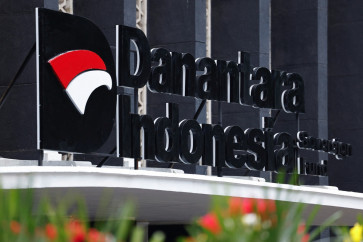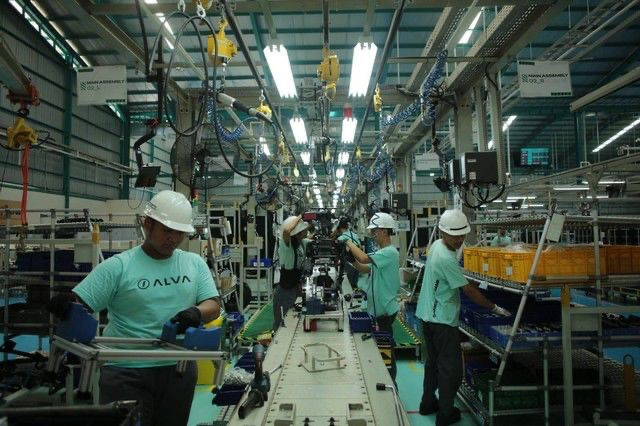Popular Reads
Top Results
Can't find what you're looking for?
View all search resultsPopular Reads
Top Results
Can't find what you're looking for?
View all search resultsGovt asked to review export contracts
The Indonesian Chamber of Commerce and Industry (Kadin) wants the government to renegotiate its existing liquefied natural gas (LNG) contracts with overseas buyers to bolster domestic supplies
Change text size
Gift Premium Articles
to Anyone
T
he Indonesian Chamber of Commerce and Industry (Kadin) wants the government to renegotiate its existing liquefied natural gas (LNG) contracts with overseas buyers to bolster domestic supplies.
The government’s priority had to be renegotiating its contract with China, which has allowed LNG to be sold below market prices, Kadin chairman for industry, research and technology Bambang Sujagad said in Jakarta on Monday
“We must talk about this soon, as there are only eight months left before the contract for the fourth cargo ends in 2013,” Bambang said.
“If the contract cannot be canceled, at least we can reduce part of the gas allocation to fulfill domestic needs,” Bambang told reporters at a press conference at his office in Jakarta.
Kadin, he said, wanted part of the nation’s LNG export allocation to be used for the domestic market to meet growing demand from local industries.
Bambang said that manufacturers in several places, including those in North Sumatra, were short of gas, resulting in reduced production.
Indonesia will needs 4.13 million standard cubic feet a day (mmscfd) of gas this year, of which 2.16 million mmscfd will go to industry and the remainder to state electricity company PT PLN.
However – on Java Island, for example – only 2.01 million mmscfd of the needed 2.51 mmscfd has been available, causing a deficit of 495,880 mmscfd, according to Kadin’s estimates.
Indonesia has a contract to supply eight cargoes of LNG from the Tangguh LNG plant in West Papua to Fujian, China.
The plant has shipped two cargoes of 7.6 million metric tons of LNG per year.
Under the contract for the third cargo, Indonesia has committed to sell around 2.5 million metric tons of LNG to China a year, in addition to supplying other buyers, including South Korea and US-based Sempra Energy.
The government recently finalized renegotiations on a supply diversion of LNG from Tangguh to Sempra Energy, with 90 percent of Sempra’s total annual allocation of 3.7 million tons to be rerouted to the domestic market.
Also up for renegotiation is the contract with China, which the government wants to shift from a fixed price per mBtu [million British thermal units] to a price based on the Indonesian Crude Price (ICP), which stood at $113.76 per barrel in May.
The contract currently calls for Indonesia to sell gas to China from US$3.50 to $3.80 per mBtu, with one mBtu equal to 0.17 barrels of oil.
Coordinating Economic Minister Hatta Rajasa previously said that the Chinese government had responded positively to the renegotiation request.
Separately, Industry Minister MS Hidayat said that the government would find a solution for local manufacturers following the recent gas price increases.
Hidayat said that the amount of the increases might disrupt the plans of local businesses.
“From what I heard from executives, they actually can accept the price increase. However, should there be a big price jump, it should be conducted in phases,” Hidayat said.
Hidayat also called on gas suppliers to ensure that supplies would be uninterrupted in case of large price hikes.
As reported earlier, the Indonesian Employers Association (Apindo) protested over the sudden increase of gas price by 55 percent to $10.20 by state gas operator PT PGN as the rising costs had pushed up production costs drastically.










